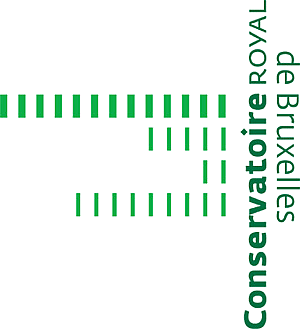Inclusion and Diversity

Special support is provided for students with specific needs, scholarship recipients from the FWB, and students facing personal, family, and/or financial difficulties. Feel free to schedule an appointment with your coordinator for assistance in this particular process.
International mobility is an essential component of higher arts education and should be accessible to all students, regardless of their background or previous opportunities.
Under the Erasmus Charter, we commit to promoting a genuine strategy of inclusion, both qualitative and quantitative, to maximize the benefits of mobility for all students.
Qualitatively, we strive to ensure that every student participating in a mobility program benefits from a high-quality learning experience. This involves a thorough assessment of the specific needs of each incoming student, especially those with fewer opportunities. We establish a personalized mentoring system for incoming students, where experienced mentors (former Erasmus students) guide them throughout their stay. Additionally, French language courses and cultural stays are offered to facilitate their integration and understanding of the academic environment. Train tickets and an annual public transportation pass are provided to incoming students. A welcome pack containing useful information about the city, cultural, and social activities is distributed.
Quantitatively, we aim to increase the number of incoming students from less privileged backgrounds. To achieve this, we develop awareness-raising activities during our application calls to encourage young musical talents to pursue higher education under excellent academic conditions. These activities will include workshops organized by the Erasmus program, “instrument fairs,” and orientation sessions on musical study opportunities. Additionally, we will work closely with local and international organizations to offer scholarships and funding to incoming students with fewer opportunities. These financial resources will reduce economic barriers to mobility and open more doors to talented students, regardless of their socio-economic background.
In summary, our inclusion strategy for mobility activities under our Erasmus charter is based on a holistic approach, ensuring that each incoming student has a high-quality learning experience while expanding access to students with fewer opportunities through awareness-raising activities and appropriate funding. We firmly believe in the importance of inclusion in our institution and are committed to making this vision a reality.
To improve the provisions of the Erasmus Charter for Higher Education (ECHE) regarding inclusion, our institution can take several measures. Firstly, it organizes regular awareness sessions for staff and students on inclusion issues, with a focus on cultural, linguistic, and social diversity, while providing training for teachers and administrative staff on best practices to support students with disabilities, students from disadvantaged backgrounds, or refugee students.
Furthermore, the institution can adapt its physical infrastructure to ensure accessibility for disabled persons and provide digital accessibility to ensure online accessibility of platforms, courses, and educational resources. Strengthening student support services, such as academic and psychological counseling services, career guidance services, and assistance services for international students, is also crucial, as is integrating intercultural perspectives and diversity into study programs. You can find this support on the conservatoire.be website.
Additionally, using inclusive language in all institutional communications, providing information and resources in multiple languages, and implementing regular evaluation mechanisms to track progress on inclusion and identify areas for continuous improvement are essential practices. By involving students, staff, and external stakeholders in this process, our institution creates a more open, equitable, and welcoming educational environment for all students.
To further enhance inclusion, our institution implements mentoring or sponsorship programs for newcomers, especially international students and those from disadvantaged backgrounds. Additionally, it offers exchange and mobility programs that take into account the specific needs of students with disabilities or students from disadvantaged backgrounds, thus encouraging their participation in enriching international experiences. It is also important to encourage student participation in university life by organizing inclusive events and activities that promote intercultural dialogue and the creation of social ties among students from diverse backgrounds. These cultural activities are organized by former Erasmus OUT students.
Our institution collaborates with local organizations, businesses, and government institutions to promote the social and professional inclusion of graduate students, offering internships and job opportunities tailored to their needs and skills. Finally, ensuring transparency and accountability in inclusion matters (website publication).
